Monday, May 28, 2018
Spring is often synonymous with joy: the sun is back and the days are longer. But for riders, the season can quickly turn into a nightmare. Insects, dermatitis, laminitis... How can they be avoided?
Seaver gives you its tips and tricks for managing your horse during spring.
Insects are a real nuisance for horses at this time of year. For some horses, all those insects circling around them will be a source of stress. But the problem doesn't stop there. Insects can also cause post-bite itching, transmit diseases, or cause superinfections...
To limit the inconvenience to the horse, there are fly repellent products (shampoos, sprays, etc.), masks and shirts. It's also advisable to take horses out at the end of the day, when there are fewer insects.
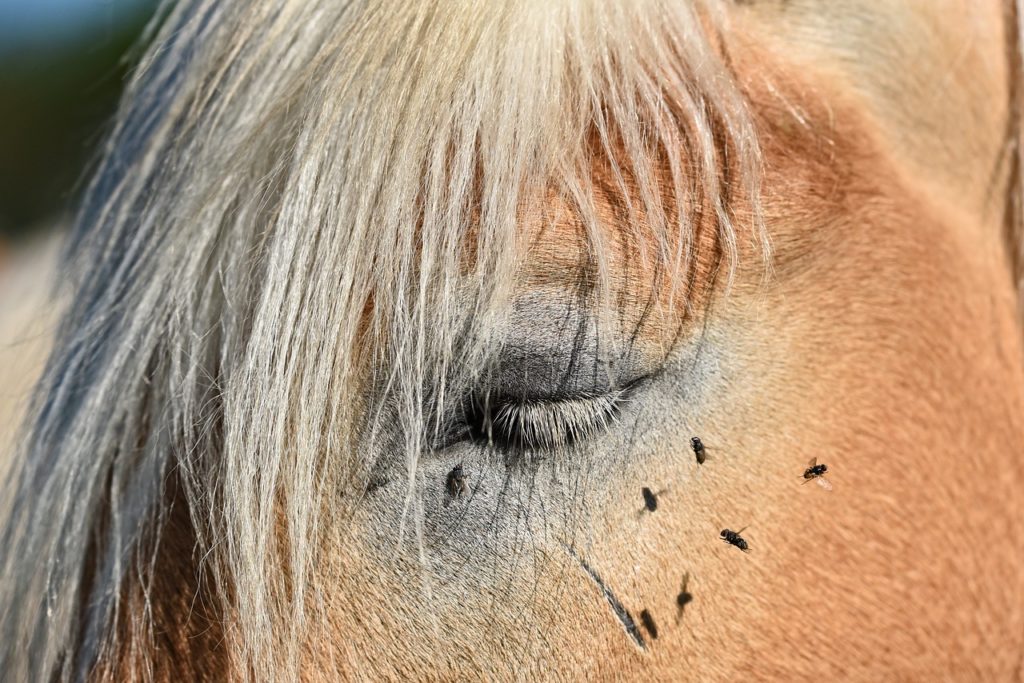
Be particularly wary of caterpillars, which are dangerous to horses. Ticks can also transmit diseases (piroplasmosis or Lyme disease).
Some horses can also suffer from dermatitis. Particularly when they are highly sensitive or even allergic to the saliva or stings of certain insects. Horses suffering from EERD (recurrent equine summer dermatitis) will scratch (often on the neck and top of the tail), sometimes to the point of bleeding. Protecting your horse from insects is therefore important from many points of view!
Like us, horses can suffer from allergies. Pollen, for example, is often the cause of respiratory discomfort and coughing in sensitive horses. So, especially for horses that go out a lot, you need to be vigilant about the presence of flowers and pollen in the meadows. Speaking of flowers, you should of course also check that the meadows do not contain any plants or trees that are toxic to horses (yew, oleander, thuja, oak acorns, etc.), and take care to avoid poisoning your horse when out and about (some plants are even fatal to horses above a certain level of ingestion).
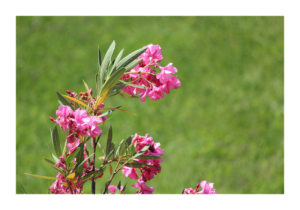
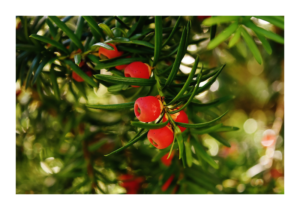
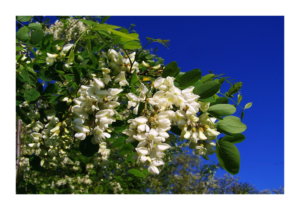
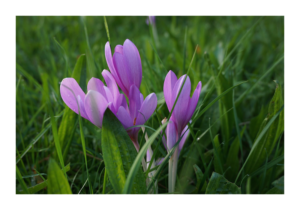
Knowing which plants are toxic for horses and how to identify them is important to prevent horses from eating them, and to be able to react quickly and effectively in the event of intoxication. Find out more about species toxic to horses on the ifce website.
Another "problem" this season: grass. Naturally, all horses will be delighted to find grass to graze. But despite its importance to a horse's diet, early spring grass is very rich. This can make your horse sick if certain precautions are not taken. Feeding the horse hay before going out and/or leaving some in the pasture will help to ensure that he eats less grass.
Restricting grazing time is also important. Horses that have been stabled all winter will need to be rehabilitated. We recommend putting horses back in the pasture gradually. First 30 minutes, then 1 hour, and so on. This will help avoid the risk of colic. You can also put him in a basket to prevent him from gorging himself on grass.
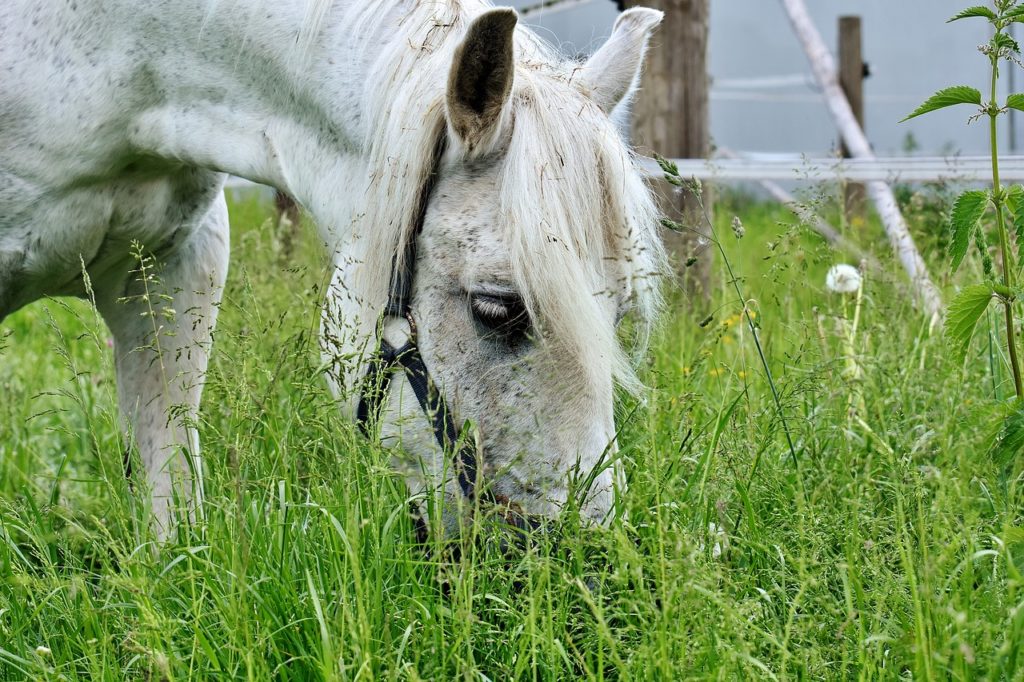
What's more, as this grass is very rich in potassium but low in magnesium and sodium, it can create problems for some horses, requiring a magnesium supplement to compensate for the imbalance. It is also low in fiber, making hay intake all the more important. To avoid an imbalance in digestive flora, which can cause colic in particular, it is also advisable to include foods rich in carbohydrates and cellulose, such as oats and barley, in the horse's diet.
While grazing, horses can also be contaminated by parasites by ingesting eggs. A horse suffering from parasite infestation will lose weight due to worms. Regular deworming and cleaning of meadows is therefore important to avoid this problem.
Excessive consumption of rich grass can cause laminitis (inflammation of the hoof). A horse suffering from laminitis can be recognized by its posture and gait. It will remain prostrate, have difficulty walking, and put its weight on its hind legs. Once again, it's important to keep an eye on your horse. In this case, especially your pony, as ponies are much more prone to laminitis. Above all, you need to analyze your horse's grass intake at this time of year.
-
See you soon for a new article!
The Seaver team